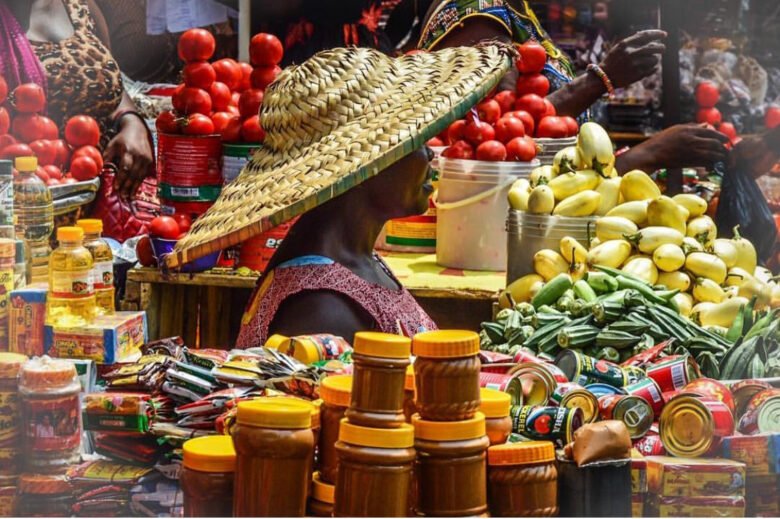Ghana’s local markets are more than just places to shop—they are vibrant centers of daily life, cultural identity, and social interaction. From bustling open-air bazaars in Accra to rural trading posts in the north, Ghana’s markets offer travelers a dynamic way to connect with the soul of the country. You’ll find everything from colorful kente cloth and aromatic spices to traditional crafts and street food—all wrapped in a rhythm of barter, conversation, and community.
This guide explores what makes Ghanaian markets cultural hubs, which ones to visit, what to expect, and how to navigate them respectfully and enjoyably.
Why Markets Matter in Ghanaian Culture
Ghanaian markets are not just economic spaces—they are social institutions where:
- Women play dominant roles as traders and entrepreneurs
- Language, tradition, and social customs are constantly exchanged
- Generations pass down skills, from fabric dyeing to herbal medicine
- News, politics, and gossip travel faster than social media
Whether urban or rural, markets reflect Ghana’s diversity, resilience, and entrepreneurial spirit.
What to See and Do at Ghana’s Local Markets
1. Explore Traditional Crafts and Textiles
Ghana’s markets are treasure troves for handwoven, handmade, and hand-dyed items:
- Kente cloth from Ashanti and Volta regions, each with symbolic patterns
- Adinkra cloth stamped with spiritual and philosophical symbols
- Beads and jewelry used in ceremonies and festivals
- Wood carvings, fertility dolls, stools, and masks
Tip: Ask sellers about the meaning of patterns or symbols—they’ll be happy to explain.
2. Taste Local Flavors and Street Food
Markets are ideal places to sample authentic Ghanaian cuisine:
- Kelewele: Spicy fried plantains
- Boiled yam and kontomire stew
- Chinchinga: Ghana-style kebabs
- Waakye: A rice-and-beans dish with shito and gari
- Fresh fruit: Pineapple, mango, orange, papaya—often sliced for takeaway
Tip: Choose food vendors with high turnover and clean setups. Bring hand sanitizer.
3. Watch the Art of Bartering
Bargaining is part of the experience. It’s a friendly, informal ritual—often with humor and back-and-forth:
- Always greet vendors before starting a negotiation
- Ask for the price, then offer a lower counteroffer (typically 30–40% less)
- Stay polite and smile—it’s not a confrontation
- Walk away if needed; many sellers may call you back with a better price
4. Witness Daily Life Unfolding
Beyond goods and services, Ghanaian markets pulse with stories:
- Listen to local languages like Twi, Ewe, Ga, Dagbani, and Hausa
- Watch seamstresses, blacksmiths, or weavers at work
- See schoolchildren helping their parents after class
- Observe religious or cultural rituals that may be happening in or near the market
Markets are raw, unscripted, and unfiltered. Take time to watch and listen.
Top Markets to Visit in Ghana
| Market Name | Location | Highlights |
|---|---|---|
| Makola Market | Accra (Central) | Largest market in the capital. Great for fabric, beauty products, local snacks. |
| Kejatia Market | Kumasi | West Africa’s largest open-air market. Maze-like and full of energy. |
| Tamale Central Market | Tamale | Northern Ghana’s trading hub. See shea butter, leather, spices, and baskets. |
| Agbogbloshie Market | Accra | Famous for wholesale produce, particularly plantains and onions. |
| Keta Market | Volta Region | Held every four days. Great for seafood, woven Ewe kente, and beads. |
| Ho Central Market | Volta Region | Known for baskets, pottery, and regional cuisine. |
| Cape Coast Market | Central Region | Ideal for crafts, food, and a quieter shopping atmosphere. |
How to Navigate a Ghanaian Market Like a Local
- Go Early
Markets are busiest from 7 a.m. to 11 a.m. Early visits help avoid the mid-day heat and crowds. - Carry Small Cash
Vendors usually don’t take large bills or give change easily. Carry small denominations in Ghana cedis. - Dress Modestly and Lightly
Markets are hot and busy. Comfortable shoes, breathable clothes, and a sunhat help. - Leave Valuables at Home
Keep your money in a discreet pouch or waist bag. Avoid flashing jewelry or phones unnecessarily. - Ask Before Taking Photos
Not all sellers appreciate being photographed. A polite request goes a long way. - Go with a Local or Guide (if possible)
Especially at Kejetia or Agbogbloshie, a guide helps you avoid getting lost and improves your bargaining power.
Cultural Tips for Respectful Engagement
- Greetings matter: A simple “Medaase” (thank you in Twi) can build instant rapport.
- Don’t rush: Many sellers appreciate small talk before doing business.
- Respect older women vendors: Often called “market queens,” they hold significant social power.
- Avoid aggressive bargaining: Prices are not inflated like tourist spots in some other countries, so pushing too hard can seem disrespectful.
- Engage children gently: Many help their parents—treat them kindly but don’t interrupt their work.
What to Buy as Meaningful Souvenirs
| Item | Region/Market | Cultural Value |
|---|---|---|
| Handwoven Kente | Kumasi, Volta | Symbol of royalty and history |
| Shea Butter | Tamale, Wa | Used for skin and hair care; often locally made |
| Ghanaian Black Soap | Accra, Kumasi | Traditional beauty product made with plant ash |
| Carved Wooden Masks | Cape Coast, Kumasi | Used in festivals, ancestral worship, and decoration |
| Recycled Glass Beads | Krobo, Makola | Used in rites of passage and fashion |
| Adinkra Print Fabrics | Kumasi | Stamped symbols representing proverbs and philosophy |
Final Thoughts
Ghanaian markets are living museums of culture, tradition, and modern-day hustle. They teach you more than guidebooks ever could—from how people eat and dress to how they build relationships and make a living. If you want to see Ghana with local eyes, skip the shopping mall and head to the market. Greet a vendor, eat something you’ve never tried, and walk away with both souvenirs and stories.




